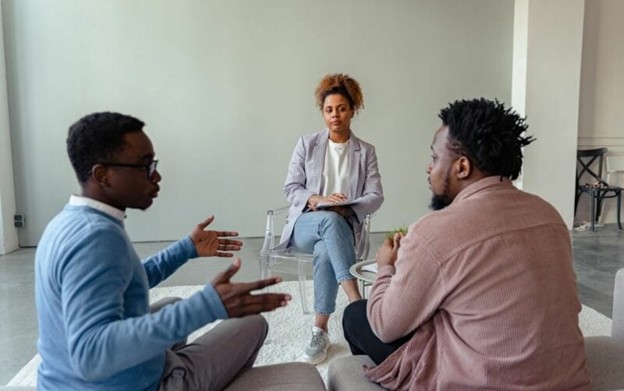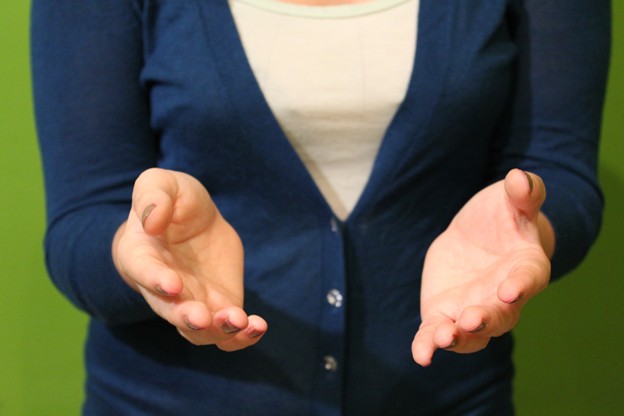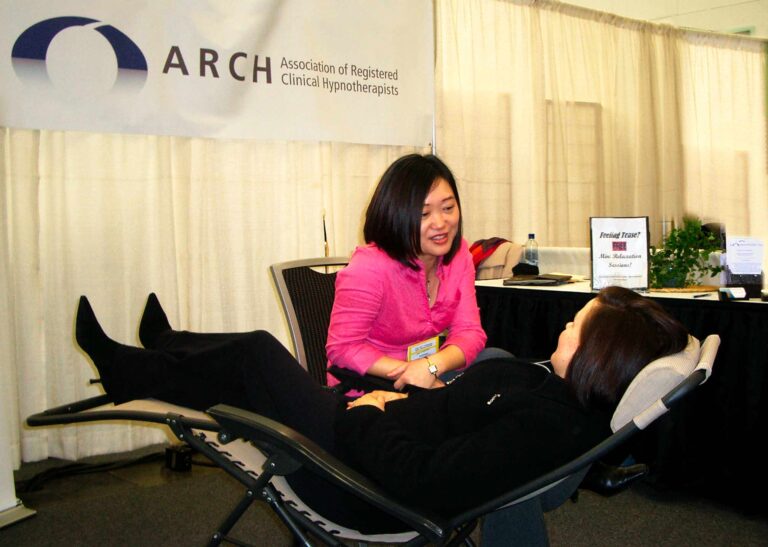Why Resilience Begins with Openness
What if I told you resilience doesn’t always mean pushing harder or being strong in a rigid way? Sometimes, the first step is simply opening—opening your hands, opening your heart, opening to what is. That openness is powerful. It changes how your body responds, and it can start shifting how you feel inside.
Let’s ground this in something real:
- In Canada, about 8% of adults report moderate to severe symptoms of PTSD in any given month (Statistics Canada).
- Roughly 8% of Canadians have been diagnosed with PTSD at some point in their lives (Canadian Mental Health Association).
- 64.9% of adults report experiencing at least one potentially psychologically traumatic event in their lifetime (Government of Canada).
These numbers tell you two things:
- Trauma is very common. You’re almost certainly not alone.
- Many people develop symptoms that go beyond what talk therapy alone can always manage.
That’s where openness comes in.
What We Mean by Open Hands + Willing Heart
- Open Hands is a DBT skill called Willing Hands. It’s a posture: your palms face upward, hands relaxed, arms uncrossed—small shifts that signal safety and willingness. When your body softens, your nervous system gets a message: “It’s safe. You don’t have to defend” (DBT Center of Orange County).
- Willing Heart is the emotional cousin of that posture—it’s about being gentle with what you feel, accepting vulnerability, and allowing emotions to be what they are without fighting them.
The Science Behind Openness
This isn’t just theory. Research continues to show how body posture and openness affect resilience. For example:
- A Canadian study after the wildfires found that 52% of respondents showed low resilience and 39.3% had likely PTSD symptoms (PubMed).
- Public health leaders in Canada emphasize that trauma- and violence-informed approaches build safety, control, and resilience for clients across all care settings (Government of Canada).
And it’s not just researchers saying this.
“Half-Smile and Willing Hands help to increase our effectiveness and reduce feelings of resistance, or willfulness, to doing what is needed in a moment.” — Kevin Rowen, PsyD, DBT Center of Orange County
And this is just the beginning.
When you pair Open Hands with a Willing Heart, you’re not just easing tension in the moment, you’re building the foundation for lasting change. In the next sections, we’ll explore what a Willing Heart really looks like in practice, why openness is central to trauma-informed healing, and how you can bring these tools into your everyday life.
Because resilience isn’t about doing more. It’s about learning how to meet yourself, and your experiences, with openness, compassion, and courage.

What Are Open Hands?
One of the simplest, and most underestimated, tools in Dialectical Behaviour Therapy (DBT) is called Open Hands. And no, it doesn’t require weeks of training or a special meditation retreat. It’s a posture. That’s it.
Here’s how it works:
- Sit or stand in a relaxed position.
- Drop your shoulders.
- Turn your palms upward and let your hands rest open.
- Keep your arms unclasped—no crossing, no fists.
That’s Willing Hands.
Why Posture Matters in Trauma Recovery
Your body and mind are connected. When you’re tense, fists clenched, arms crossed, shoulders tight, your nervous system is on guard. That posture screams, “I’m ready to fight.” And your brain responds accordingly.
But when you shift to an open posture, your body sends a different signal: “It’s safe. I can soften.” This is what researchers call a bottom-up approach, you’re using your body to influence your mind.
And it’s not just theory:
- Posture changes how we feel. Studies show even small shifts in body position can regulate stress and reduce distress.
- DBT skills like Willing Hands are designed to increase effectiveness and lower resistance in moments of emotional distress (DBT Center of Orange County).
A Real-Life Example
Imagine you’re in the middle of a heated conversation. Your instinct is to clench your fists and cross your arms. Instead, you pause, breathe, and turn your palms upward.
The argument doesn’t disappear, but you shift. You’re less reactive, more open to listening, and less likely to say something you’ll regret. That’s the power of a simple posture.

The Idea of a Willing Heart
If Willing Hands is about the body, a Willing Heart is about the mind. It’s the emotional counterpart, choosing to approach yourself, others, and even your pain with openness and compassion instead of resistance.
What Does a Willing Heart Really Mean?
A willing heart doesn’t mean forcing a smile or pretending everything is okay. Instead, it’s about creating emotional space:
- Letting yourself feel emotions without judgment.
- Approaching therapy with curiosity instead of skepticism.
- Softening into acceptance, even when life feels unfair.
For trauma survivors, resistance often shows up as a protective shield. A Willing Heart doesn’t take that shield away, it just reminds you that healing requires some space to let safety and compassion in.
The Research Behind Openness
This idea isn’t just philosophy. There’s strong evidence that self-compassion—the foundation of a Willing Heart—supports resilience:
- Self-compassion is linked to lower anxiety and depression. (Greater Good Science Center, UC Berkeley)
- Kristin Neff, a leading researcher in this field, has extensive resources and trainings here: Self-Compassion
At Sigpark Counselling, we encourage clients to practice both: the physical posture of Willing Hands and the mindset of a Willing Heart. Learn how we integrate these approaches in our services:Sigpark Counselling – Vancouver, BC
Trauma-Informed Healing Through Openness
Trauma changes the way people move through the world. It can make the body tense, the mind guarded, and relationships harder to navigate. That’s why openness matters so much in healing. Both Open Hands (body) and a Willing Heart (mindset) create small openings that let safety, connection, and resilience grow.
Why Openness Helps Heal Trauma
In trauma recovery, “openness” isn’t about pretending everything is fine. It’s about making space for balance, acceptance of what has happened, and hope for what can change.
The Government of Canada outlines trauma- and violence-informed care as being rooted in safety, trust, collaboration, empowerment, and cultural sensitivity.
Therapists trained in trauma-informed practice use this framework to help clients:
- Feel safe enough to share difficult experiences.
- Balance the need for acceptance with the possibility of change.
- Learn practical skills to manage overwhelming emotions.
- Carry skills outside of the therapy room into daily life.
Expert Perspective
Dr. Bessel van der Kolk, author of The Body Keeps the Score, explains it this way: “Trauma victims cannot recover until they become familiar with and befriend the sensations in their bodies.” His research highlights why approaches like Willing Hands and mindfulness matter, because they help people reconnect with their bodies in safe, manageable ways.
How Sigpark Brings This Into Practice
At Sigpark Counselling, trauma-informed care isn’t a buzzword, it’s the foundation of our work. Through approaches like Dialectical Behaviour Therapy (DBT), trauma-informed counselling, and collaboration with hypnotherapy, clients learn both acceptance and change skills in a safe, supportive environment.
Learn more about our trauma-informed approach here.

Practical Exercise—Open Hands, Willing Heart
It’s one thing to read about a tool like Open Hands and Willing Heart. It’s another to actually practice it in your daily life. The good news? This exercise takes less than five minutes, and it can shift your emotional state almost immediately.
Step 1: Settle Into a Comfortable Position
Sit upright but relaxed. Place your feet flat on the ground, keep your shoulders soft, and take a slow, deep breath.
Step 2: Try Willing Hands
Rest your hands on your lap with your palms open, facing upward. Relax your fingers so they’re not clenched. This simple posture signals to your body and brain that you’re open and receptive. Research in psychophysiology has shown that posture can influence mood and stress response, open body language reduces tension and invites calm.
Step 3: Add the Half Smile
Soften your facial muscles and allow a gentle, subtle smile, not a forced grin, just a “Mona Lisa” expression. Studies in behavioural science show that facial expressions can influence emotions; even a small smile can reduce stress and trigger a sense of calm. Harvard Health explains how mind-body practices like this support emotion regulation.
Step 4: Invite a Willing Heart
While holding this posture, repeat to yourself:
- “I can accept this moment as it is.”
- “I am open to healing.”
You don’t have to believe it perfectly. You just have to create enough space to let openness start.
Step 5: Practice Daily
Like any skill, consistency matters. Try this practice once a day, maybe before bed or before a difficult conversation. Over time, it becomes easier for your body and heart to “remember” the posture of openness, even during stressful moments.
At Sigpark Counselling, we often integrate practices like Willing Hands and Willing Heart into Dialectical Behaviour Therapy (DBT). These simple tools help clients move from resistance to resilience, and they’re easy enough to use outside the therapy room.

Everyday Resilience—Bringing Skills Into Real Life
The real test of any therapy skill isn’t whether you can do it in a quiet room; it’s whether you can use it in the chaos of everyday life. That’s where Willing Hands and a Willing Heart shine. They’re practical, portable, and don’t require any special equipment.
At Work
Imagine heading into a stressful meeting. Instead of tightening your fists under the table, rest your palms face-up in your lap. Add a subtle half-smile and remind yourself: “I can accept this moment as it is.” This small shift can lower your stress response and help you approach conflict with clarity.
According to the Canadian Mental Health Association, nearly 1 in 5 Canadians will experience a mental health problem in any given year. Learning small, body-based skills at work can help prevent stress from snowballing into burnout.
In Relationships
Arguments happen. But instead of reacting with crossed arms or clenched fists, trying Open Hands in the middle of conflict can physically reduce defensiveness. Pair it with a Willing Heart phrase like “I’m willing to listen” and you’ll be surprised how quickly the tension starts to ease.
During Trauma Triggers
For survivors of abuse or those managing PTSD, trauma reminders can come out of nowhere. By practicing this posture daily, your body starts to “remember” the feeling of calm. When a trigger hits, shifting into Willing Hands + Willing Heart can help you ride out the wave until the emotion passes.
The American Psychological Association notes that body-based techniques, posture, breath, and relaxation practices, can reduce physiological stress responses. This aligns with what we teach in therapy: resilience starts with simple, repeatable tools.

How to Access Support at Sigpark Counselling
Learning tools like Open Hands and Willing Heart is powerful, but they’re even more effective when you practice them with professional guidance. At Sigpark Counselling, we’ve made it simple to access support, whether you’re navigating trauma, rebuilding relationships, or just trying to manage daily stress.
Low-Cost Sessions
We know financial strain can make therapy feel out of reach. That’s why every week we reserve two low-cost counselling sessions for clients in urgent need. These appointments make sure support is available when you need it most. Learn more about our rates here.
Flexible Scheduling
Life doesn’t stop for 9–5. That’s why we offer evenings, weekends, and even holiday appointments, so you can fit therapy into your life instead of the other way around.
Two Convenient Vancouver Locations
You can choose between our Downtown office (666 Burrard Street, Suite 500) and our Fairview office (525 West 8th Avenue, Suite 800). Both are easily accessible by SkyTrain, with nearby parking options. Full details can be found here.
Virtual Counselling
Can’t make it in? No problem. Virtual sessions are available seven days a week, giving you flexibility no matter your schedule.
At Sigpark Counselling, our focus is on creating safe, supportive, and accessible care. Whether you need individual counselling, couples counselling, or trauma-informed therapy, you’ll find options that fit your needs. Explore our services here.
It’s a Choice
Openness is a choice, and healing is possible. If you’re ready to take the first step, book your session today at Sigpark Counseling.







